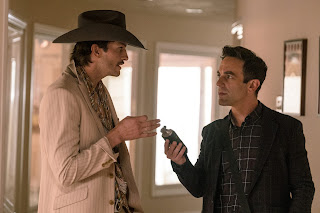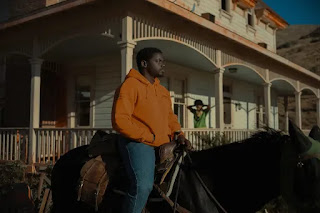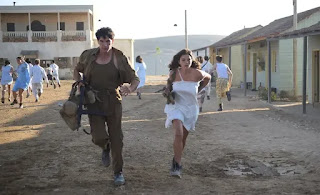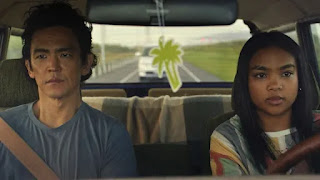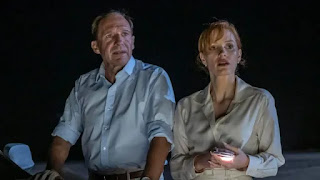Send a self-centered New Yorker to Texas and he's bound to arrive with baggage, say a suitcase full of inflated superiority.
That's Ben Manalowitz, a New Yorker writer who thinks that every story must point to themes large enough to justify his decision to write about it.
Ben's always looking for definitive statements, an ambition that blinds him to the people who are right in front of him.
Fortunately, BJ Novak, who wrote and directed Vengeance, the story of Ben's Texas trip, doesn't share the same limitation. Novak has made an entertaining culture-clash comedy full of characters who are more than they seem.
Ben (Novak) also writes for a podcast produced by an editor (Issa Rae) who encourages him to dig deeply into a Texas story he discovers when he's drawn into a mystery involving Abby, a woman that he casually hooked up with in Manhattan.
As it happens, soon after Abby returned to her small Texas backwater home, she turned up dead.
Abby's family believes that Ben and Abby were more than a one-night fling. That's why her brother Ty (Boyd Holbrook) insists that Ben attend Abby's funeral, where he’s even asked to speak.
Ty believes that his sister was murdered. No way she died of an opiate overdose, says Ty, who doesn't accept the coroner's report. Tye wants Ben to help him find the murderer and avenge Abby's death.
Isn’t that what any significant other would do? And why doesn't Ben just take up residence with Abby's hospitable family while the vengeance plot brews?
As the movie progresses, Ben's inquiries lead him to Quentin Sellers (a terrific Ashton Kutcher). A music producer who worked with the dead girl, Sellers quickly upends Ben's expectations by delivering a surprisingly astute monologue.
Novak creates a main character who isn't instantly likable. Ben thinks he knows more than he does. He can't see beyond the story he thinks he’s telling. Maybe it's just a story he's telling himself
Vengeance may strike you as talk heavy. It is, but some of the conversations are pointed and the so-called rube characters prove more perceptive than Ben initially suspects.
Without straining for effect, Novak toys with red-state cliches -- not only for blue-state Ben's edification but for ours. Don't panic, though; he's not singing Kumbaya, either.
I won't reveal the movie's ending but honesty forces me to tell you that I'm still trying to come to grips with it.
But, hey, I also need to say that Vengeance wisely sidesteps being the kind of movie its suggestive title implies.
One last thing: Don’t be surprised if the movie leaves you hungry for a Whataburger.
